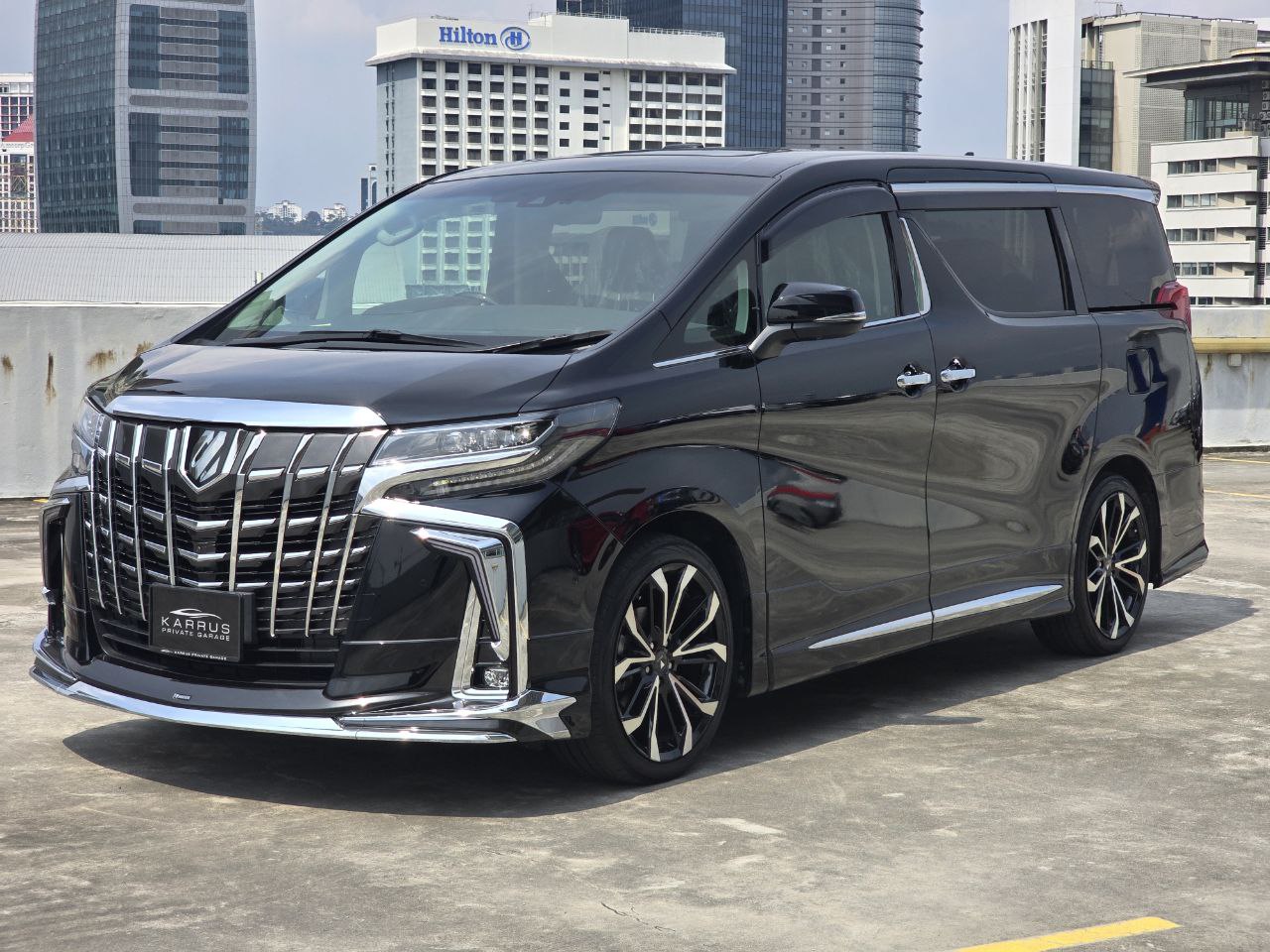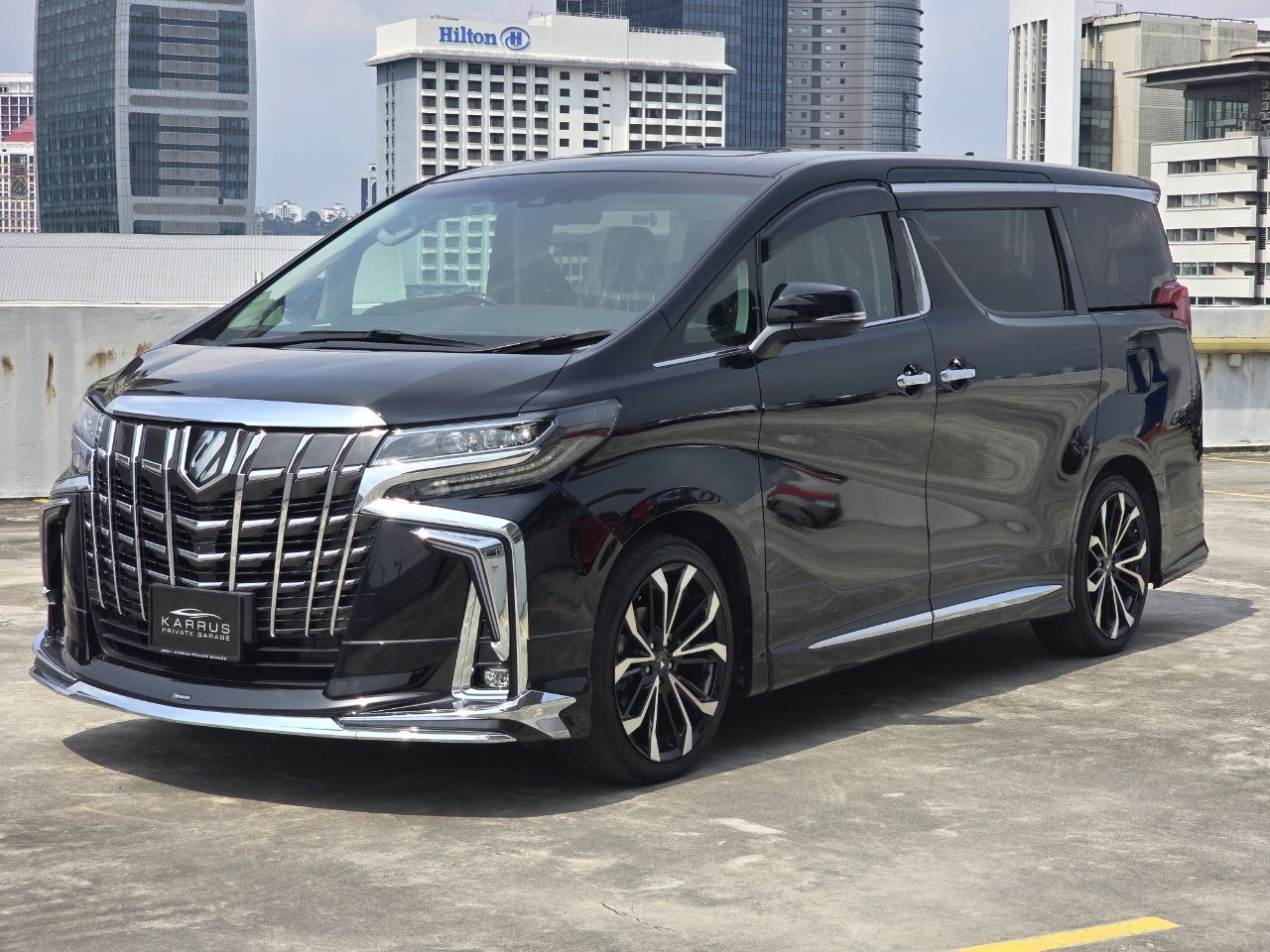
Alphard SC: Why It’s a Popular Choice in Ma ..
Aug 09 - 2025

18
Jun
The Malaysian used car market is dynamic, with pricing trends shifting due to various economic, social, and industry-related factors. As we move through 2025, understanding these factors is crucial for buyers and sellers looking to navigate the market effectively.
At TC AutoHub, we specialize in providing insights into the latest market trends and ensuring our customers get the best deals when buying or selling a used car. Whether you are looking for a fuel-efficient sedan, a rugged SUV, or a premium reconditioned vehicle, staying informed about price trends can help you make smarter financial decisions.
Fluctuations in fuel prices significantly impact used car pricing in Malaysia. As fuel costs rise, demand for fuel-efficient vehicles such as hybrid and electric cars tends to increase, leading to higher resale values for these models. Conversely, gas-guzzling cars with larger engines may see depreciation as consumers seek more economical alternatives.
Tip: If you are planning to buy a used car, consider fuel efficiency as a key factor, as fuel prices are expected to remain volatile throughout 2025.
The availability of vehicle financing and the cost of loans directly affect the affordability of used cars. In 2025, if banks impose stricter loan conditions or increase interest rates, fewer buyers may qualify for financing, leading to a drop in demand and lower used car prices. On the other hand, if financing options remain flexible and interest rates are low, more people will enter the market, increasing demand and sustaining higher prices.
Tip: If you are looking for financing, compare loan offers from multiple banks or consider financing solutions available through TC AutoHub for the best rates.
As inflation impacts the general cost of living in Malaysia, consumers may become more cautious with their spending. While demand for brand-new cars may decrease due to higher costs, the used car market often benefits, as more buyers turn to pre-owned vehicles as a cost-effective alternative. However, if economic conditions worsen, even the used car market can slow down, forcing sellers to lower prices.
A used car's age and mileage are among the biggest factors determining its resale value. A newer car with low mileage typically commands a higher price, as buyers perceive it to have a longer lifespan. In contrast, older vehicles or those with excessive mileage may depreciate faster.
Tip: Regular servicing and maintaining low mileage can help retain your car’s resale value.
Certain brands and models retain their value better than others. In Malaysia, brands like Toyota, Honda, and Perodua are known for their durability and strong resale value, making them highly sought after in the used car market.
Tip: Research resale values before purchasing a car to ensure you are investing in a model with strong market demand.
A car that has been well-maintained, with a full service history and no accident records, will always fetch a higher price compared to one with missing service records or signs of poor upkeep. Buyers prefer vehicles that have been regularly serviced and come with complete documentation.
Tip: Keep service records and receipts organized, as they can help justify a higher asking price when selling your car.
Modern features such as advanced safety systems, infotainment upgrades, and hybrid or electric capabilities can positively impact a used car’s resale value. Cars equipped with adaptive cruise control, lane departure warning, and fuel-saving technology are particularly attractive to buyers.
Tip: Consider resale value when choosing a car by prioritizing models with modern features and strong consumer demand.
Used car prices fluctuate based on supply and demand. If there is a surplus of certain models, prices will naturally decline. However, if specific cars are in high demand and supply is limited, prices will rise.
For example, if new car production faces delays due to supply chain disruptions, buyers may turn to used cars, driving prices up. Similarly, seasonal trends—such as an increase in demand for MPVs and SUVs before festive periods—can temporarily impact pricing.
Reconditioned cars (recon cars) have become a major part of Malaysia’s used car market. These vehicles, typically imported from Japan or the UK, are refurbished and resold at competitive prices. Due to their lower mileage, premium features, and well-maintained condition, recon cars often fetch higher prices compared to local used cars.
Tip: If you're considering a reconditioned car, look for trusted dealers like TC AutoHub, which ensures quality assurance and transparency in vehicle history.
As Malaysia moves towards green energy, electric vehicles (EVs) and hybrid cars are gaining popularity. Government incentives and environmental consciousness are pushing buyers towards these options, making them more valuable in the used car market.
However, traditional petrol or diesel cars still dominate, and hybrid cars' long-term battery costs remain a factor that influences second-hand demand.
Tip: If you’re looking for long-term value, consider a fuel-efficient or hybrid model with strong demand in Malaysia’s used car market.
With the rise of online car marketplaces, pricing transparency has increased. Buyers and sellers can now compare prices across different platforms, making it easier to determine a car’s fair market value.
Websites like TC AutoHub allow users to browse, compare, and evaluate used car listings, ensuring they get the best deal. The availability of detailed pricing data also prevents overpricing and helps buyers make informed decisions.
Used car prices are influenced by economic conditions, demand for specific models, and external factors such as fuel prices, financing rates, and inflation.
Yes, hybrid and electric vehicles often retain higher resale values due to fuel efficiency and increasing consumer demand, but battery replacement costs should be considered.
Lower mileage typically means a higher resale value because it indicates less wear and tear. A car with high mileage may require more maintenance, reducing its price.
Brands like Toyota, Honda, and Perodua hold strong resale values due to their reliability, affordability, and ease of maintenance.
You can browse trusted platforms like TC AutoHub, where verified listings ensure transparency and competitive pricing for buyers and sellers.
Several factors affect the pricing of used cars in Malaysia in 2025, from economic conditions and supply-demand dynamics to individual vehicle attributes and the rising trend of reconditioned cars. Whether you’re looking to buy or sell, understanding these trends will help you get the best deal.
At TC AutoHub, we provide expert insights and trusted listings to ensure a seamless car-buying experience. Visit our platform today to explore the best deals on used cars in Malaysia and don't hesitate to give us a call.